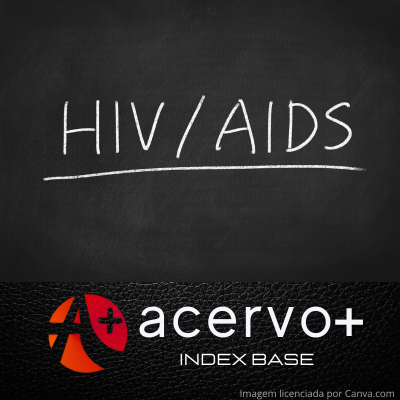Dimensões psicossociais do HIV: repercussões na vida diária e no tratamento
##plugins.themes.bootstrap3.article.main##
Resumo
Objetivo: Analisar dimensões psicossociais do HIV, incluindo autopercepção, percepções sobre comorbidades, estigmas sociais, apoio familiar e relação com tratamento e serviços de saúde. Métodos: Estudo transversal com abordagem qualitativa e quantitativa realizado com pacientes com HIV atendidos em um Hospital Universitário do Pará. Coleta realizada entre novembro/2024 e maio/2025, com questionário semiestruturado contendo 9 perguntas. Abordou-se autopercepção, relações sociais e com o sistema de saúde. Análise qualitativa pela técnica de Bardin e quantitativa pela frequência. Pesquisa aprovada pelo Comitê de Ética. Resultados: Amostra de 48 participantes evidenciou que o diagnóstico de HIV é marcado por tristeza, medo e choque, melhorando com o tempo, apoio social e acesso à informação. 70,8% dos entrevistados não relataram sofrer preconceito nem tratamento diferenciado, 77% possuem redes de apoio. Persistem preocupações com transmissão, doenças oportunistas e estigma. A adesão ao tratamento é motivada por saúde, vontade de viver e apoio familiar, com poucos obstáculos relatados. A relação com o sistema de saúde é bem avaliada, sendo a equipe vista como apoio essencial ao tratamento. Conclusão: O diagnóstico de HIV acarreta impactos psicossociais importantes, que diminuem com o tempo, conhecimento e redes de apoio, porém persistem temores sobre saúde, transmissão e preconceito.
##plugins.themes.bootstrap3.article.details##
Copyright © | Todos os direitos reservados.
A revista detém os direitos autorais exclusivos de publicação deste artigo nos termos da lei 9610/98.
Reprodução parcial
É livre o uso de partes do texto, figuras e questionário do artigo, sendo obrigatória a citação dos autores e revista.
Reprodução total
É expressamente proibida, devendo ser autorizada pela revista.
Referências
2. ARMOON B, et al. HIV related stigma associated with social support, alcohol use disorders, depression, anxiety, and suicidal ideation among people living with HIV: a systematic review and meta‑analysis. International Journal of Mental Health Systems, 2022; 16: 17.
3. ASRINA A, et al. Community stigma and discrimination against the incidence of HIV and AIDS. Journal of Medicine and Life, 2023; 16: 1327–1334.
4. BARDIN e LAURENCE. Análise de conteúdo. São Paulo: Edições 70, 2011; 229.
5. BAZRAFSHANI A, et al. The role of online social networks in improving health literacy and medication adherence among people living with HIV/AIDS in Iran: Development of a conceptual model. PLOS ONE, 2022; 17: 261304.
6. BRASIL. Boletim Epidemiológico HIV e AIDS. 2024. Disponível em: https ://bvsms.saude.gov.br/. Acessado em: 07 de junho de 2025.
7. BRASIL. Protocolo Clínico e Diretrizes Terapêuticas para Manejo da Infecção pelo HIV em Adultos. 2024. Disponível em: https ://www.gov.br/aids/pt-br/central-de-conteudo/pcdts/pcdt_hiv_modulo_1_2024.pdf. Acessado em: 1 de junho de 2025.
8. CAMLIN CS, et al. Understanding the role of incentives for achieving and sustaining viral suppression: A qualitative sub‑study of a financial incentives trial in Uganda. PLOS ONE, 2022; 17: 270180.
9. CHAMBERLIN S, et al. How HIV Clients Find Their Way Back to the ART Clinic: A Qualitative Study of Disengagement and Re‑engagement with HIV Care in Malawi. Aids and Behavior, 2021; 26: 674‑685.
10. FAUK NK, et al. HIV‑related challenges and women’s self‑response: A qualitative study with women living with HIV in Indonesia. PLOS ONE, 2022; 17: 275390.
11. FAUK NK, et al. Stigma and Discrimination towards People Living with HIV in the Context of Families, Communities, and Healthcare Settings: A Qualitative Study in Indonesia. Int J Environ Res Public Health, 2021; 18: 5424.
12. HOLANDA BA, et al. Análise do Perfil Epidemiológico de casos de AIDS no Brasil (2020‑2023). Brazilian Journal of Implantology and Health Sciences, 2024; 6: 1926‑1934.
13. KIM GS, et al. “I'm in the Care Orbit”: Unveiling the Enabling Context of the HIV Care Continuum in People Living With HIV. Nursing Inquiry, 2024; 32: 12695.
14. LIU Z, et al. HIV‑related stress predicts depression over five years among people living with HIV. Frontiers in Public Health, 2023; 11: 2296‑2565.
15. NINNONI JP, et al. An exploratory qualitative study of the psychological effects of HIV diagnosis; the need for early involvement of mental health professionals to improve linkage to care. BMC Public Health, 2023; 23: 2518.
16. NINNONI JP, et al. Coping with loneliness and stigma associated with HIV in a resource‑limited setting, making a case for mental health interventions; a sequential mixed methods study. BMC Psychiatry, 2023; 23: 163.
17. SUBEDI B, et al. Perceived stigma among people living with HIV/AIDS in Pokhara, Nepal. Dove Medical Press Journal: HIV/AIDS – Research and Palliative Care, 2019; 11: 93‑103.
18. UNAIDS. Índice de Estigma em relação às pessoas vivendo com HIV/AIDS BRASIL. 2025. Disponível em: https ://unaids.org.br/wp-content/uploads/2025/05/VF-ARTE_Stigma-Index-2025-UNAIDS-Versao-O nline.pdf. Acessado em: 4 de junho de 2025.
19. WARNER S, et al. Communication and coordination of care for people living with HIV: a qualitative study of the patient perspective. BMC Primary Care, 2024; 25: 19.
20. WELLS NR, et al. Belonging, social connection and non‑clinical care: Experiences of HIV peer support among recently diagnosed people living with HIV in Australia. Health & Social Care in The Community, 2022; 30: 4793.

